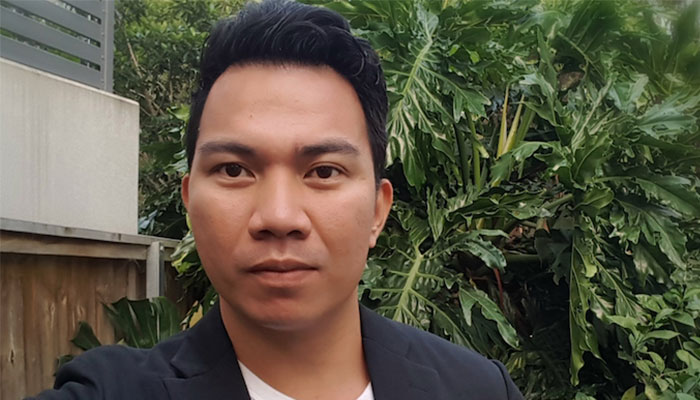Despite low evidence around the effectiveness of hydroxychloroquine (HCQ) in treating COVID-19, its endorsement by US President Trump led to a global shortage of the drug used by many people with the painful autoimmune conditions lupus and rheumatoid arthritis and for the treatment of malaria – which affects over 200 million people each year.

Join the queue: Pandemic aside, there is always a popularity contest among diseases, says Dr Yves St James Aquino.
It prompted a range of responses from different health institutions around the world, from stockpiling the drug to use with COVID-19 patients and refusing scripts for other patients, to rationing and regulating the drug so that regular users still had supply for proven treatments.
“Some clinicians argued that HCQ shouldn’t be used to treat COVID-19 except in clinical trials because there were lots of concerns about its safety, there can be quite severe side-effects, and it was not clear if it is actually effective against the virus,” says bioethicist Dr Yves St James Aquino who lectured in the Department of Philosophy at Macquarie University.
Confusion around the drug’s effectiveness was heightened when a study published in the Lancet in May linking HCQ use in COVID-19 patients to higher hospital deaths was retracted.
“This is a great example of how, when we focus on ranking diseases rather than patients, we risk some harmful consequences,” he says.
Ethics of rationing drugs
Aquino co-authored an article in the September 2020 issue of the Journal of Medical Ethics exploring the ethics of rationing drugs to make sure that those with the greatest need are served.
“The situation with HCQ really highlighted how health regulators and administrators rank different diseases in priority in a dehumanising way, and how there’s an inequality in both attention and resources that are given to some disease conditions,” he says.
In ethics, we try not to separate the disease from the individual because it's dehumanising; instead, we talk about the people who have the disease.
“In ethics, we try not to separate the disease from the individual because it's dehumanising; instead, we talk about the people who have the disease.”
Aquino is a medical doctor turned philosopher who wrote the article while working as a sessional lecturer in bioethics at Macquarie University.
“When we look at the inequality of disease conditions, we can get a real indication of the values that govern the ways that health care institutions prioritise their resources.”
Values that dictate priorities
One factor that gives a disease far greater priority than other health conditions, is its contagiousness, says Aquino.

Ethical dilemmas: Bioethicist Dr Yves St James Aquino says that when we focus on ranking diseases rather than patients, we risk harmful consequences.
“Because COVID-19 is so highly contagious, there’s a sense of greater urgency and a much larger scale and bigger threat, so even if the benefit of a drug like HCQ is uncertain, some authorities see that there’s enough rationale for diverting access away from people with lupus, for example,” he says.
Another criteria for ranking diseases lies in their characteristics such as whether they are curable, what the mortality rate is, and how critical a role the drug could play.
“Lupus requires lifetime access to HCQ to relieve flares and prevent organ damage, while the majority of COVID-19 patients recover from the condition without treatment, which could make a case for those with lupus taking priority,” he explains.
A third value that impacts on the inequality of disease conditions is the public profile of a disease.
“Pandemic aside, there’s always a popularity contest among diseases, to the extent that some people argue that high-profile diseases such as breast cancer, can take resources away from other cancers because they attract so much attention,” he says.
“On the other side are rare diseases and conditions known as ‘orphan’ diseases where drug companies aren’t inclined to adopt them to develop treatments, because it won’t pay off in profits.”
Pandemic political pressures
Aquino says there’s no simple answer to the dilemma – but the key is in focusing on patient needs.
“We do have to strike a balance between matters of urgency and matters of equity, particularly when it looks like the pandemic will be around for an extended time, and the current rush on resources is going to be hard to sustain.”
When politicians get involved in allocating priorities, the result can completely undermine long-established ethical processes, Aquino warns.
They are also accountable to the public if they are diverting resources away from lupus, and patient groups are becoming very outspoken about this.
“When President Trump called HCQ and azithromycin basically wonder-drugs for treating COVID-19, that resulted in a lot of pressure being put on hospitals and clinicians to adopt an unproven treatment, so if they aren’t using HCQ they have to defend that decision to patients and their families,” he says.
“On the other hand, they are also accountable to the public if they are diverting resources away from lupus, and patient groups are becoming very outspoken about this.”
This impacts decision-making in the health care setting, he says.
- Big brands take a stand and support #BLM
- Why the timing could not be worse as newspapers close across Australia
“This can really disrupt the way clinicians and hospitals and hospital committees deal with using a medication based on clinical judgment and scientific evidence.”
The political pressure and the global nature of the pandemic emergency led the Food and Drug Administration in the US to authorise the potential use of HCQ to treat COVID-19 despite insufficient evidence, so that doctors and hospitals could not be sued if they used it.
The FDA later withdrew the authorisation when trials showed the drug was unlikely to be beneficial to patients with COVID-19.
The drug continues to court controversy. On 4 July, the World Health Organisation’s International Steering Committee discontinued HCQ trials in hospitalised patients for safety reasons, while a smaller US study at Henry Ford Health System published 3 July found the drug reduced deaths.
In Australia, the Therapeutic Goods Administration issued restrictions in March to limit the use of HCQ exclusively for approved indications, which excludes treatment for COVID-19.
In the face of ongoing pressure to authorise HCQ use for COVID-19 despite international evidence showing it isn’t effective, the TGA has since issued a number of new alerts, the latest in August. Each of these confirm that the use of HCQ to treat COVID-19 is strongly discouraged and restrict its use for non-approved diseases outside clinical trials.
“This is a stark example of the way that a heightened public profile can magnify the inequality of diseases and lead to pressure on clinicians and healthcare institutions to undermine key ethical concepts such as evidence-based practice,” says Aquino.



